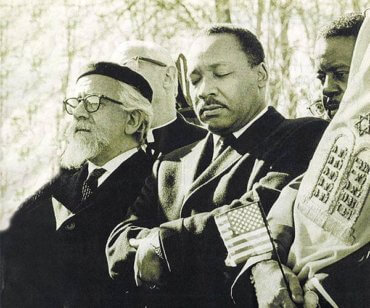Is Hashem Really Listening To My Prayers?
Hello Jew in the City-
I relate to praying as something that I must do three times a day. While, whenever I think about it, I conclude that Hashem IS in control (at least to a large degree), but I do not truly believe that Hashem listens to my praying. As such, saying tehilim or otherwise davening for something specific feels, to me, as an exercise in futility. Any suggestions? Yes, I know the translation of most of the siddur. Sometimes I add my personal prayers – in my own words. But it still feels like I am simply recording a message on someone’s voicemail – knowing that probably nobody listens to the messages.
Thanks,
D
Dear D-
Thank you for your question. That God pays attention to mankind is axiomatic, as He tells us so many times throughout Tanach. In Tehillim 144:3, for example, David asks God, “What is man that You are mindful of him?” (from which we see that God is mindful of man). That God is concerned with each and every one of us is the basis of hashgacha pratis. But is the issue that you feel that God doesn’t listen to prayers in general or that you feel that He doesn’t listen to your prayers? From the way you phrased things I suspect the latter. If that is in fact the case, the issue is one of self-esteem more than anything else. And that’s not an uncommon phenomenon.
The Rambam, in the first chapter of Hilchos Deios, describes what he calls “the straight path.” This, he tells us, is the midpoint of each character trait that a person possesses. We should strive to be equidistant from the extremes, not too close to either of them. Therefore, we must constantly evaluate ourselves in order to ensure that we are on the path of moderation. For example, we should not allow ourselves to be easily angered but we should likewise not be stoic, without emotion. The proper, healthy approach is to strive for moderation, only showing anger when a situation actually warrants it, in order to prevent such situations from recurring. The same is true for being stingy vs. being a spendthrift, being a frivolous clown vs. being a gloomy gus, and in all other cases where a person might veer too much to one direction or the other. If one finds himself too much to one extreme, he may have to temporarily overcompensate a little to the other side in order to balance out. This is true when it comes to having too much or too little self-esteem.
Along these lines, Rav Simcha Bunim of Peshischa famously wrote that a person should carry two pieces of paper in his pocket. On one, for when we’re feeling haughty and arrogant, we should have written, “I am but dust and ashes” (Bereishis 18:27). On the other, for when we are feeling insufficient, we should have written, “The whole world was created for my sake” (Sanhedrin 4:5).
It’s a tightrope sometimes but we have to remember that we do have value and God does pay attention to each of us. (Of course, listening to prayers does not guarantee that He grants us everything we ask for. We must have emunah that He gives us that which is appropriate and good for each of us. The value in prayer is not in magical wish-granting, it’s in the “face time” that we get to share with God.)
Sincerely,
Rabbi Jack Abramowitz
JITC Educational Correspondent
If you found this content meaningful and want to help further our mission through our Keter, Makom, and Tikun branches, please consider becoming a Change Maker today.







